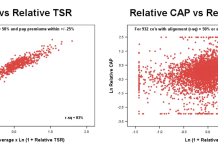The priorities of Elżbieta Bieńkowska, the European Commissioner for Internal Market, Industry, Entrepreneurship and SMEs are charted here, including her thoughts on social innovation
Elżbieta Bieńkowska is the European Commissioner for Internal Market, Industry, Entrepreneurship and SMEs. She is in charge for renewing the strategy for completing the single market, for goods and services such as extending the list of products to be recognised throughout the European Union (EU). She also has to reinforce a strong and high-performing industrial base for our internal market, by encouraging investment in modern technologies to improve the business environment. Identifying new possible job sources, particularly with a focus on high-value jobs in start-ups, and encouraging the EU States to make efficient defence markets is another key element of her work.
Supporting shipbuilding and other industries
In the view of the European Commission, the European shipbuilding industry is a competitive and dynamic sector. Certainly, from an economic and social perspective, it is important, yet it is also linked to other sectors including transport, energy, security, research and the environment. While shipbuilding is a strategic industry in various EU countries, the sector faces fierce international competition from countries like China and South Korea. We learn more about this challenge now in the words of the European Commission.
“The industry has also suffered from the absence of effective global trade rules and state-supported over investment. This is because shipyards offer a wide range of technologies, employ a significant number of workers, and generate foreign currency income, due to the fact the global shipbuilding market is dollar-based.”
On the positive side, we know that shipyards (there are about 150 large shipyards in Europe with some 120,000 employed in them) make a significant contribution to national security interests (military shipbuilding) and regional industrial infrastructure. The Commission promotes the development of this industry and address competitiveness issues that occur.
So what is the Commission doing to address issues affecting the shipbuilding industry? They are achieving this through a variety of policy measures, especially, LeaderSHIP 2015 and LeaderSHIP 2020.1
Early on in her time in this role, the Commission set out a strategy for revival of European industry, which set out to focus on competitiveness in terms of the preparation of trade agreements and policy proposals. The Commission also adopted strategies and industrial plans targeted at stimulating growth, innovation and boosting competitiveness in sectors like shipbuilding and industrial products, automotive manufacturing and commodity markets.2
More recently, a high-level conference on tourism was held at the European Parliament, according to the European Travel Commission who are funded by the EU. While growth and employment are key priorities for the EU, we find out that tourism is a vital sector because it accounts for 10% of GDP and jobs in Europe. In addition, it also generates growth in many key sectors, such as shipbuilding, construction, cultural and creative industries, retail, transport and textiles. 5 million new jobs related to tourism are expected to be created in the EU over the next ten years, with 20% of those jobs going to people under 25, therefore, tourism will play a key role in combatting youth unemployment.3
The development of social innovation
Elżbieta Bieńkowska is also interested in the development of social innovation within the EU. In 2018, the European Commission held an awards ceremony in Brussels to recognise outstanding projects that develop and showcase social innovations from throughout Europe. Each winner received a €50,000 prize to enable further development and lasting, real implementation.
The 2018 theme was ‘RE:THINK LOCAL’, which encouraged participants to tackle local challenges in their changing economy in order to create opportunity, particularly for the younger generation. The winners were:
- Ulisse: A digital travel platform for deaf people.
- HeritageLab: An incubation programme for young people who want to set up a business.
- Career Bus: A career orientation venture for young people from small urban and rural areas.
But the Impact Prize money was awarded Mouse4All (Spain), a project that enables people with severe physical disabilities to access an Android tablet or smartphone without touching the screen. This kind of social innovation is increasingly necessary as digitalisation and globalisation increases, connecting the world in a way that inspires new dimensions for innovation. Commissioner Bieńkowska said: “They create opportunities where most only see challenges.
“The European Commission is committed to empowering youth in shaping a better future for themselves, their communities and Europe at large. The winning projects can deliver on this goal in a sustainable way which will be beneficial for both the economy and society at large.”4
Protecting small and medium-sized enterprises (SMEs)
The Commissioner also focuses on her duty to SMEs as SME Ambassador, participating in the creation of legislation to regulate the Digital Single Market. In February 2019, the European Commission aims to protect the online business environment for small businesses who may suffer from any unfair trading practice – especially structural issues on online platforms that can undermine the innovation of the SME via an arbitrary suspension of an account, a lack of transparency in platform rankings and a more meaningful dispute resolution method that involves mediators. This initiative intended for all EU online platforms stems from the Commissions Communication on Online Platforms of May 2016 and implements President Juncker’s 2017 State of the Union address.
Bieńkowska, explaining her philosophy of this approach, said:
“Our new rules are especially designed with the millions of SMEs in mind, which constitute the economic backbone of the EU.
“Many of them do not have the bargaining muscle to enter into a dispute with a big platform, but with these new rules they have a new safety net and will no longer worry about being randomly kicked off a platform, or intransparent ranking in search results.”5
References
1 https://ec.europa.eu/growth/sectors/maritime/shipbuilding_en
2 https://www.europarl.europa.eu/EPRS/Commissioner_hearings/EPRS-Briefing-538941-Internal-Market-Industry-Entrepreneurship-and-SMEs-FINAL.pdf
3 https://ecty2018.org/the-eu-china-tourism-year-hailed-as-a-major-opportunity-for-growth-in-europe/
4 https://ec.europa.eu/growth/content/winners-european-social-innovation-competition-announced_en
5 http://europa.eu/rapid/press-release_IP-19-1168_en.htm
Open Access Government











